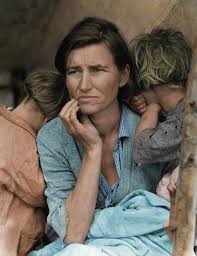Abstract
Promises I Can Keep: Why Poor Women Put Motherhood before Marriage and Doing the Best I Can: Fatherhood in the Inner City, by Kathryn Edin and Maria Kefalas and Timothy J. Nelson, respectively, are excellent portrayals of young women’s and men’s lives. These texts explore issues of courtship, sexual and romantic relationships, contraceptive use (or lack...Download this resource to see full details. Download this resource to see full details.
Details
- Subject Area(s):
- Family
- Resource Type(s):
- Class Activity
- Class Level(s):
- Any Level
- Class Size(s):
- Any
Usage Notes
While I have only used this class activity in a senior-level Gender, Family, and Society class, I think the books are accessible for first or second year students as well and could be used in a variety of classes, such as Marriage and Family, Sociology of Gender, Race, Class, and Gender, Social Inequality, and Family Studies. This activity is typically...Download this resource to see full details. Download this resource to see full details.
Learning Goals and Assessments
Learning Goal(s):
- Identify and critically examine challenges adolescents and young adults face in the context of urban poverty.
- Identify and critically examine norms in those communities with respect to gendered dynamics in courtship, sexual and romantic relationships, and parenthood.
- Identify and critically examine their own beliefs, values, and biases with respect to "normal" life course trajectories and become more aware of their own privilege (where present).
Goal Assessment(s):
- Students will describe the challenges adolescents and young adults face in the context of urban poverty by discussing these challenges with those who read their book and by questioning those who read the other book.
- Students will describe norms in those communities with respect to gendered dynamics in courtship, sexual and romantic relationships, & parenthood by discussing them with those who read their book & by questioning those who read the other book.
- Students will describe their own beliefs, values, and biases with respect to "normal" life course trajectories and become more aware of their own privilege (where present) through discussion & possibly through a reflection paper.
When using resources from TRAILS, please include a clear and legible citation.


